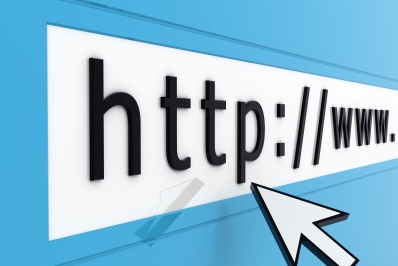Government warned to act before IP addresses run out
The growth of the internet means more IP addresses need to be made available, while the freeing up of domain names is also becoming an issue.

The European Commission has said the internet's dramatic growth is making it more important for governments and businesses to adopt IPv6 as the current Internet Protocol runs out of addresses.
EC advisor Detlef Eckert said that EU governments had a crucial role when it came to IPv6 migration because industry players had a "wait and see" attitude. The public sector had a key role in taking a long-term view, and intervene by leading IPv6 implementation, he said.
The EC has already called for a quarter of European businesses, government offices and homes to switch to IPv6 by 2010, but the matter is getting more urgent, with internet innovator Vint Cerf claiming that the world could run out of IP addresses by this year.
The continued global growth of the internet was further highlighted by Verisign, which said it had added 24 million new domain names in 2008, a 16 per cent increase over the previous year.
But the Internet Corporation for Assigned Names and Numbers (ICANN), admitted it was having problems with a new plan to launch generic top-level domains, which would allow users to create any domain they wish within 64 characters.
According to sister title PC Pro, ICANN said it was investigating a number of technical and economic issues, such whether the Domain Name Servers had enough space, the cost of registration, and the potential market impact.
Sign up today and you will receive a free copy of our Future Focus 2025 report - the leading guidance on AI, cybersecurity and other IT challenges as per 700+ senior executives
-
 Redefining resilience: Why MSP security must evolve to stay ahead
Redefining resilience: Why MSP security must evolve to stay aheadIndustry Insights Basic endpoint protection is no more, but that leads to many opportunities for MSPs...
-
 Microsoft unveils Maia 200 accelerator, claiming better performance per dollar than Amazon and Google
Microsoft unveils Maia 200 accelerator, claiming better performance per dollar than Amazon and GoogleNews The launch of Microsoft’s second-generation silicon solidifies its mission to scale AI workloads and directly control more of its infrastructure
-
 European Commission approves data flows with UK for another six years
European Commission approves data flows with UK for another six yearsNews The European Commission says the UK can have seamless data flows for another six years despite recent rule changes
-
 UK’s ‘Tech Prosperity Deal' with US hits rocky ground
UK’s ‘Tech Prosperity Deal' with US hits rocky groundNews The US has reportedly threatened to pull out of the deal over the Digital Services Tax and broader economic disagreements
-
 Three things you need to know about the EU Data Act ahead of this week's big compliance deadline
Three things you need to know about the EU Data Act ahead of this week's big compliance deadlineNews A host of key provisions in the EU Data Act will come into effect on 12 September, and there’s a lot for businesses to unpack.
-
 The second enforcement deadline for the EU AI Act is approaching – here’s what businesses need to know about the General-Purpose AI Code of Practice
The second enforcement deadline for the EU AI Act is approaching – here’s what businesses need to know about the General-Purpose AI Code of PracticeNews General-purpose AI model providers will face heightened scrutiny
-
 Meta isn’t playing ball with the EU on the AI Act
Meta isn’t playing ball with the EU on the AI ActNews Europe is 'heading down the wrong path on AI', according to Meta, with the company accusing the EU of overreach
-
 ‘Confusing for developers and bad for users’: Apple launches appeal over ‘unprecedented’ EU fine
‘Confusing for developers and bad for users’: Apple launches appeal over ‘unprecedented’ EU fineNews Apple is pushing back against new app store rules imposed by the European Commission, suggesting a €500m fine is a step too far.
-
 ‘A major step forward’: Keir Starmer’s £187 million tech skills drive welcomed by UK industry
‘A major step forward’: Keir Starmer’s £187 million tech skills drive welcomed by UK industryNews The ‘TechFirst’ program aims to shore up the UK’s digital skills to meet future AI needs
-
 Government’s ‘Humphrey’ AI tool helps local authorities cut costs
Government’s ‘Humphrey’ AI tool helps local authorities cut costsNews The Minute tool, part of the Humphrey AI assistant, is being trialled at 25 councils